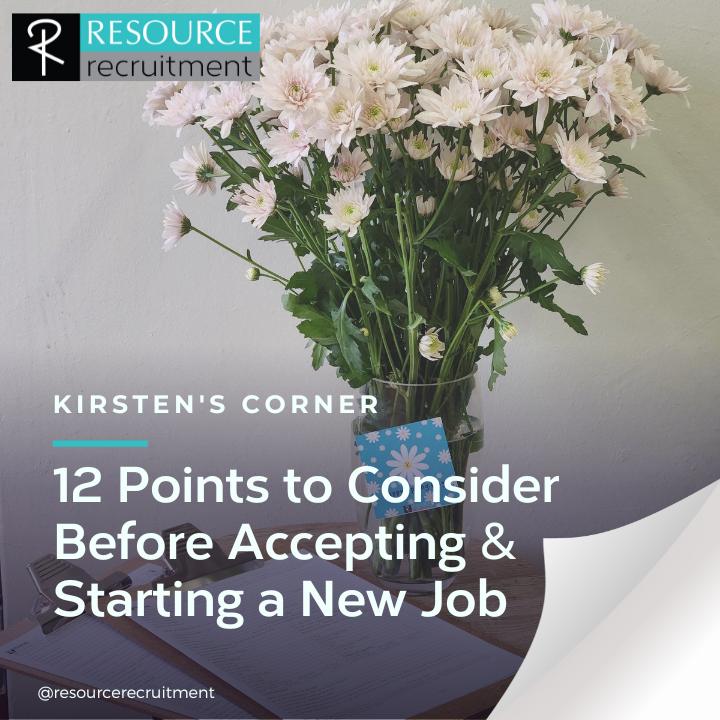
01 Sep 12 Points to Consider Before Resigning and Starting a New Job
12 Points to Consider
Before Resigning and Starting a New Job
Before changing jobs, there are several administrative tasks you should consider and remember to ensure a smooth transition. Here are a few important things to keep in mind when resigning and serving your notice period:
1. Written Offer of Employment:
Some companies will only give you your contract of employment on the day you start a new job, but you should insist that your offer of employment is in writing, and contains the title of the new position, start date, salary, working hours and any benefits. Never resign until you have something in writing.
2. Notice Period:
Abide by the notice period mentioned in your current employment contract when resigning. If you do not have a contract of employment, you fall under the Basic Conditions of Employment Act and your notice in 1 week in the first 6 months of employment, 2 weeks in the second 6 months and 4 weeks thereafter. You cannot take leave owing concurrent with your notice period. Should you and your employer mutually agree to shorten a notice period, this is acceptable.
3. Resignation Letter:
Write a formal resignation letter addressed to the company, but personally hand deliver it to your manager and resign in person.
4. Exit Interviews:
Some companies conduct exit interviews to gather feedback from departing employees. This is optional, and should you be invited to partake in one, prepare for it by making a list of constructive suggestions and observations.
5. Benefits and Pension:
Check what benefits and pension contributions you’re entitled to from your current employer. The HR or Payroll department of your current and future employer will be able to assist you with transferring funds and memberships.
6. Unpaid Leave or Outstanding Leave:
Address any unpaid leave or outstanding leave days with your current employer. You accumulate 1 day of annual leave, for every 17 days worked, throughout the year, which if not taken should be paid out with your last salary. Should you have taken more leave than you are owed, this would be unpaid leave and could be a deduction from your salary.
7. Reference Letters/ Certificate of Service:
Request a Written reference letter from your supervisor before leaving. You may not need this now, but in years to come, your manager may no longer be at the company, or the company may not exist. Legally, companies are obligated to issue a Certificate of Service confirming your employment, salary, and reason for leaving, if they are not willing to issue a reference letter.
8. Clearance Procedures:
Follow any clearance procedures set by your current employer, which might involve returning company property and completing necessary paperwork.
9. New Employer’s Requirements:
If your new employer has requested forms to be completed or copies of documents, make sure that you get these to them on time and in full. This is the first opportunity you have to show them your enthusiasm and ability to complete a task.
10. Bank and Address Changes:
If not before, in the first week of employment, your new employer will be requesting your bank account details. If you want to make any changes to your salary account, do it before you start. You may also be requested to provide proof of address.
11. Tax Number:
If you pay PAYE you may be requested to supply the company with your Income Tax Number.
To find out your Income Taxe Number, simply message SARS SMS Channel by sending an SMS to SARS on 47277 from your mobile device, with “TRN (Space) ID number/Passport number/ Asylum Seeker number”
If you don’t have a Tax Number, you can visit the SARS website at http://www.sarsefiling.co.za/ and select Register Now on the homepage.
12. General Appointments:
Try and get all routine appointments, like hairdressers, dentists, doctors, etc. out of the way before starting a new job. While some pre-existing commitments are unavoidable, you want to take as little personal time off as possible in the first three months.
Remember that employment laws and regulations can change, so it’s a good idea to consult with legal or professional advisors to ensure you follow all necessary procedures and regulations while changing jobs in South Africa.



